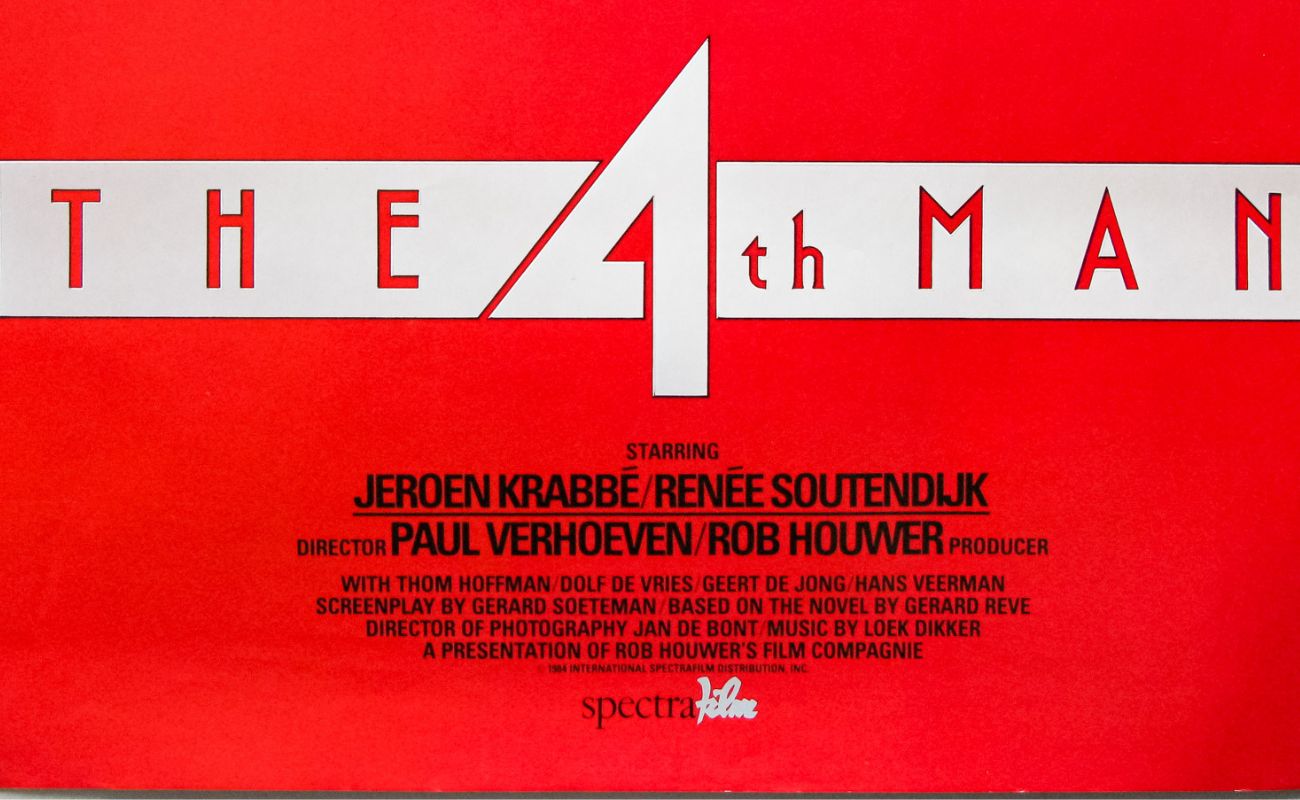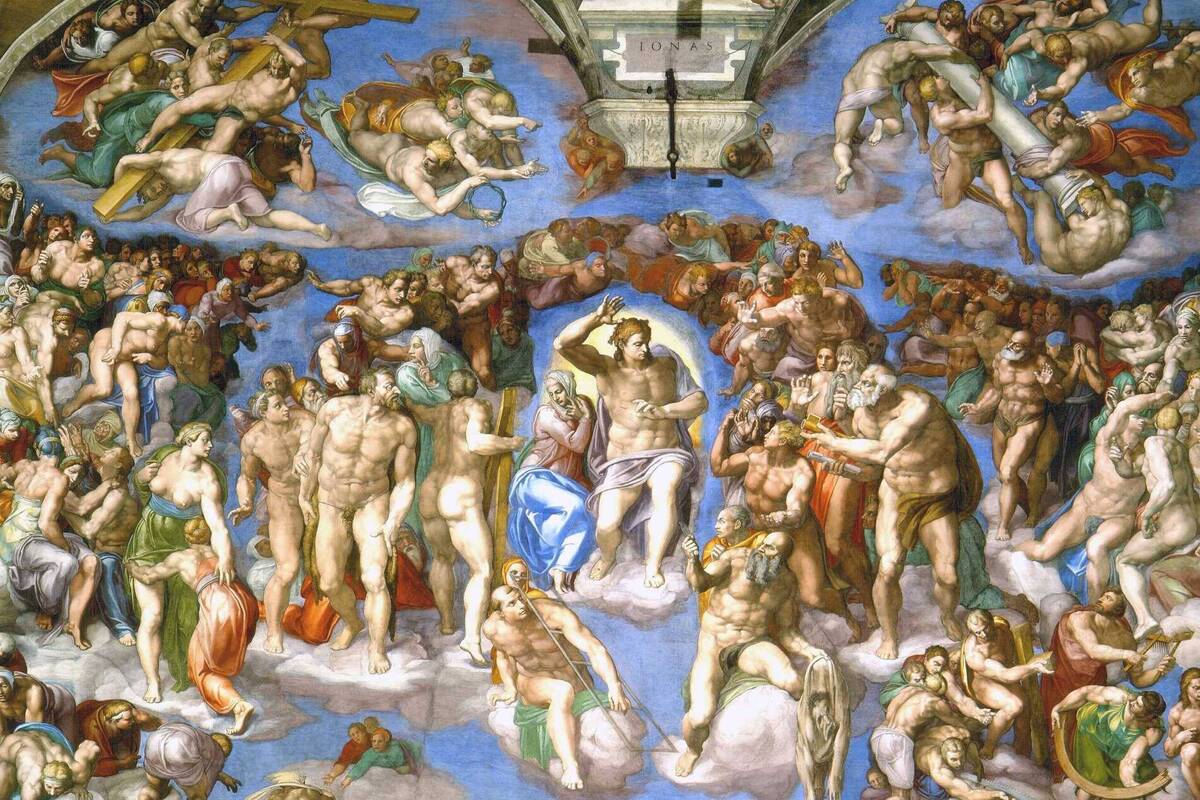
Welcome to the fascinating world of the movie “The 4th Man”! This Dutch psychological thriller, directed by Paul Verhoeven, is a gripping exploration of suspense, desire, and deception. Released in 1983, “The 4th Man” has become a cult classic, admired for its intricate plot, stunning cinematography, and captivating performances.
In this article, we will delve into 46 intriguing facts about “The 4th Man”. From behind-the-scenes anecdotes to hidden Easter eggs, we will uncover the secrets that make this film an unforgettable cinematic experience. Whether you’re a die-hard fan or new to the movie, get ready to be immersed in a world of enigma and unravel the mysteries of “The 4th Man. So grab some popcorn, get comfortable, and let’s dive into the fascinating universe of this mesmerizing film!
Key Takeaways:
- “The 4th Man” is a Dutch psychological thriller that explores complex themes of desire, identity, and obsession, captivating audiences with its gripping storytelling and stunning cinematography.
- The film’s success helped establish director Paul Verhoeven as a prominent figure in Dutch cinema, paving the way for international recognition and inspiring future filmmakers with its innovative storytelling and impactful themes.
The 4th Man is a Dutch psychological thriller film.
The movie was released in 1983 and was directed by Paul Verhoeven, who also co-wrote the screenplay.
The 4th Man is based on the novel of the same name by Gerard Reve.
The novel was published in 1981 and gained critical acclaim for its gripping and suspenseful storytelling.
The film follows the story of Gerard Reve, a bisexual writer played by Jeroen Krabbé.
Gerard becomes involved in a passionate and dangerous relationship with a mysterious woman named Christine.
The 4th Man was a commercial success in the Netherlands.
It was one of the highest-grossing Dutch films of 1983 and received positive reviews from both critics and audiences.
The film explores themes of sexuality, obsession, and identity.
It delves into the complex and often dark nature of human desires, blurring the lines between reality and fantasy.
The 4th Man features stunning cinematography by Jan de Bont.
The visual style of the film adds to its atmospheric and suspenseful tone, creating a captivating viewing experience.
The movie was nominated for several awards.
It received nominations for Best Director, Best Actor, and Best Production Design at the 1984 Nederlands Film Festival.
The 4th Man was Paul Verhoeven’s last Dutch-language film before transitioning to Hollywood.
Verhoeven later gained international acclaim for directing films like RoboCop, Total Recall, and Basic Instinct.
The film’s score was composed by Loek Dikker.
The haunting and atmospheric music enhances the tension and suspense throughout the movie.
The 4th Man has been praised for its complex and layered storytelling.
The narrative keeps viewers on the edge of their seats, with unexpected twists and turns.
The movie’s release helped establish Paul Verhoeven as one of the prominent directors in the Netherlands.
His unique style and ability to tell compelling stories contributed to his rising success in the industry.
The 4th Man was remastered and re-released in 2018.
The restored version allowed a new generation of viewers to experience the film’s suspense and intrigue.
The film has gained a cult following over the years.
Its unique blend of psychological horror and thriller elements has attracted fans of the genre.
The 4th Man explores the dark side of human relationships.
It delves into the complexities of desire, manipulation, and power dynamics.
The movie has been recognized as a landmark in Dutch cinema.
Its impact on the industry and its contribution to the psychological thriller genre cannot be understated.
The 4th Man’s success paved the way for more Dutch filmmakers to gain international recognition.
It showcased the talent and creativity within the Dutch film industry to a global audience.
The film’s suspenseful atmosphere is heightened by its use of lighting and shadows.
The cinematography accentuates the psychological tension, making each scene visually captivating.
The 4th Man received a limited release in other countries.
It gained recognition in film festivals and garnered positive reviews from international critics.
The protagonist’s internal struggles reflect larger societal issues.
The film touches on themes of repression, self-discovery, and acceptance.
The 4th Man showcases the director’s early exploration of provocative and controversial themes.
Paul Verhoeven’s bold approach to storytelling is evident in this psychological thriller.
The movie’s gripping narrative keeps viewers engaged from beginning to end.
The suspense builds gradually, culminating in a thrilling climax that leaves audiences breathless.
The 4th Man serves as a prime example of Dutch cinema’s ability to captivate and intrigue audiences.
It demonstrates the country’s unique perspective and storytelling prowess.
The film’s success in Europe helped pave the way for Dutch directors to break into the international film scene.
Paul Verhoeven’s subsequent Hollywood career is a testament to the impact of The 4th Man.
The 4th Man’s screenplay expertly weaves together elements of mystery, romance, and psychological thriller.
The script keeps viewers guessing and engaged throughout the film’s runtime.
The movie’s precise editing and pacing contribute to its overall impact.
The cuts and transitions create a sense of unease, amplifying the suspenseful moments.
The 4th Man features nuanced performances by its cast.
Jeroen Krabbé and Renée Soutendijk deliver powerful portrayals of their complex characters.
The 4th Man’s cinematography and set design create a visually stunning world.
The attention to detail immerses viewers in the atmospheric and unsettling atmosphere of the film.
The movie’s finale leaves room for interpretation.
The ambiguous ending allows viewers to draw their own conclusions and discuss the film’s themes and symbolism.
The 4th Man’s impact on the genre can still be felt today.
It has influenced subsequent Dutch and international psychological thrillers and remains a point of reference for filmmakers.
The film’s intense and intimate scenes further heighten its suspense.
The chemistry between the actors adds depth to the characters’ relationships and motivations.
The 4th Man’s soundtrack enhances the overall viewing experience.
The music complements the tone and atmosphere of the film, adding another layer of depth.
The 4th Man’s marketing campaign generated buzz and anticipation.
Its intriguing trailers and promotional materials built up excitement for its release.
The film’s critical success opened doors for Dutch cinema on the international stage.
It proved that Dutch filmmakers were capable of creating high-quality, thought-provoking films.
The 4th Man’s use of symbolism adds layers of meaning to the story.
Metaphors and visual cues enrich the narrative, allowing for deeper analysis and interpretation.
The movie’s tight screenplay propels the story forward without unnecessary distractions.
Every scene serves a purpose, contributing to the overall narrative and character development.
The 4th Man retains its relevance and impact in contemporary film discussions.
It continues to be studied and analyzed, offering insights into themes of desire, identity, and human nature.
The film’s pacing keeps viewers engaged and invested in the story.
The balance between slow-burning tension and rapid moments of action creates a dynamic viewing experience.
The 4th Man’s success led to a resurgence of interest in Dutch cinema both domestically and abroad.
It sparked a renewed appreciation for the country’s rich history of filmmaking.
The movie’s themes and exploration of moral ambiguity make it a thought-provoking watch.
It challenges viewers to question their own beliefs and assumptions about human behavior.
The 4th Man’s nonlinear narrative structure adds to its intrigue.
The film jumps back and forth in time, gradually revealing crucial pieces of the puzzle.
The film’s visual effects, though minimal, are used effectively.
The subtle incorporation of special effects enhances the storytelling without overpowering the narrative.
The 4th Man’s exploration of gender and sexuality was considered groundbreaking at the time.
Its bold portrayal of non-traditional relationships challenged societal norms and sparked conversations.
The movie’s focus on internal struggles and psychological torment adds depth to its characters.
Their internal conflicts drive the narrative, making the story emotionally engaging.
The 4th Man’s screenplay underwent several revisions to fine-tune the narrative.
Each change and adjustment contributed to the overall cohesiveness and impact of the story.
The film’s reception cemented Paul Verhoeven’s status as one of the most influential Dutch directors.
His subsequent international success further solidified his legacy in the world of cinema.
The 4th Man’s legacy continues to inspire and influence filmmakers today.
Its innovative storytelling techniques and exploration of dark themes have left an indelible mark on cinema.
Conclusion
The 4th Man is an intriguing and suspenseful movie that has captivated audiences with its gripping storyline and exceptional performances. From its intense plot twists to the masterful direction, this film has proven to be an unforgettable cinematic experience.
With its complex characters, stunning cinematography, and thought-provoking themes, The 4th Man has solidified its place as a classic in the suspense genre. Whether you’re a fan of psychological thrillers or simply looking for a captivating film to watch, The 4th Man is definitely worth adding to your must-watch list.
So grab some popcorn and settle in for a thrilling and suspenseful ride with The 4th Man!
FAQs
1. Who directed The 4th Man?
The 4th Man was directed by Paul Verhoeven, who is renowned for his ability to create tension and suspense in his films.
2. What is the plot of The 4th Man?
The 4th Man follows the story of a man named Gerard Reve, who becomes entangled in a web of passion and danger when he becomes involved with a seductive woman who may have deadly intentions.
3. When was The 4th Man released?
The film was released in 1983 and quickly gained critical acclaim for its unique storytelling and compelling performances.
4. Is The 4th Man based on a book?
Yes, The 4th Man is based on the novel of the same name written by Gerard Reve. The film adaptation successfully captures the essence of the source material.
5. Are there any notable performances in The 4th Man?
Absolutely! The film features outstanding performances from its lead actors, including Jeroen Krabbé as Gerard Reve and Renée Soutendijk as the enigmatic woman who captivates him.
6. Is The 4th Man suitable for all audiences?
The 4th Man is rated R for its intense scenes and adult themes. Viewer discretion is advised.
7. Is The 4th Man a foreign language film?
Yes, The 4th Man is a Dutch-language film. However, it has been widely acclaimed and enjoyed by international audiences thanks to its universal themes and compelling storytelling.
Was this page helpful?
Our commitment to delivering trustworthy and engaging content is at the heart of what we do. Each fact on our site is contributed by real users like you, bringing a wealth of diverse insights and information. To ensure the highest standards of accuracy and reliability, our dedicated editors meticulously review each submission. This process guarantees that the facts we share are not only fascinating but also credible. Trust in our commitment to quality and authenticity as you explore and learn with us.


